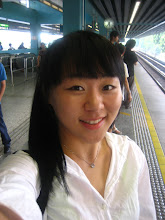When I first took my major course in year 1, my professor told me in the class that "Linguistics is a science.". It sounded strange for me, because what I knew about science were totally different and so far from linguistics. However, as time went by and as I took more and more major classes, I came to understand a little bit about what he meant by 'science'.
We can collect so many speech data all around. When linguists have plenty of data, they classify them into some categories according to their functions, characteristics, etc. Then, they analyze the data step by step in order to understand them. In this procedure, they sometimes need to set up some hypothesis to explain patterns or facts that they found in the data. Although I simplified the process of linguistic analysis too much, but anyway, here we can see the procedure of analyzing linguistic data : gathering data - observation of the data - figuring out patterns - making hypothesis and explain the patterns.
That is what linguists do, which is exactly same as what scientists do. Both linguists and scientists try to analyze data and explain facts based on their hypothesis. This is what I saw and learned in my major classes.
What we learned on this Friday class was about the anylizing. If what I said above can be a whole picture of analyzing, what we did in the class was more specific and more detail step of analysis. It was my first time doing discourse analysis, so it was not easy to understand the speech according to every single components of speech events. However, it was interesting that there are some kinds fo patterns or rules in every speech -even in a short chit chat with friends - in our daily lives.
September 9, 2009
Subscribe to:
Post Comments (Atom)

Hey Jay,
ReplyDeleteI agree with you! Linguistics and science have so much in common, what with the data collection and analysis. But I think that one major difference in both is that linguistics involve people - us, which makes things so much more unstable and unpredictable than science. We change, evolve, interact and get influenced by each other so much so that even sometimes, the way we use language changes too. For example the word 'mugging' actually means robbing, but in the Singapore context, it would mean that one is studying! I have no idea how that came about, but it's interesting all the same.
There's even an urban dictionary (http://www.urbandictionary.com/) for meanings we come up with, but aren't exactly in the dictionary!
Haha, ok I think I've written too much.
See you Friday!
-Huimin
(PS:is your blogger in Korean? The buttons are all in Korean!)
Thank you! Now I changed the setting! :)
ReplyDelete